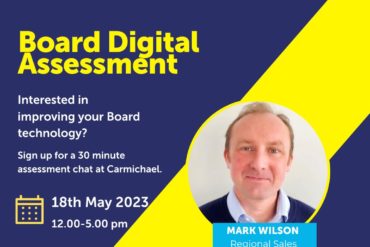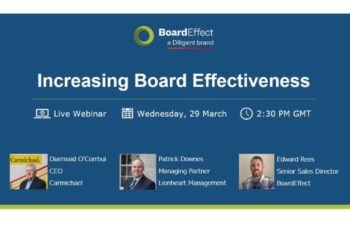Target Audience
Trustees, Chairs, CEOs, and those responsible for governance in their Charity.
Outline
The Charities Governance Code explains the minimum standards you should meet to effectively manage and control your charity. This workshop will walk you through the requirements of the code including actions and evidence needed to demonstrate compliance.
Methodology
Delivered virtually via Zoom.
Target Audience
- Non-Profit Organisations: Executives, Marketing Teams, Social Media Managers
- Freelancers: Those who work with Non-Profits
- Students: Studying marketing or Non-Profit management
- Consultants: Specialising in Non-Profit sector
Outline
- Introduction (10 minutes)
- Module 1: Understanding Social Media Landscape (20 minutes)
- Popular Platforms: Facebook, Twitter, Instagram, LinkedIn, TikTok
- Audience Demographics
- Case Studies: Successful Non-Profit Social Media Campaigns
- Module 2: Setting Objectives and KPIs (20 minutes)
- Module 3: Content Strategy (30 minutes)
- Types of Content: Educational, Inspirational, Call-to-Action
- Content Calendar
- Tools for Content Creation
- Module 4: Audience Engagement (20 minutes)
- Module 5: Analytics and Reporting (20 minutes
- Tools for Analytics
- Metrics to Track
- Reporting and Insights
- Q&A and Wrap-up (20-30 minutes)
Methodology
Delivered virtually via Zoom.
Target Audience
Are you a Board member of a voluntary or community group? Are you unsure of what is expected of you? Do you want to ensure your organisation is governed in accordance with good practice?
Outline
This session will demystify Board members’ roles and responsibilities and give you tools to enhance your contribution and the effectiveness of your Board. It outlines the purpose of the board as a whole in relation to governance and management. We then examine the specific roles of individual board members and in particular, their legal responsibilities and duties under the Charities Act (2009) and the Companies Act (2014). The workshop will finish with a discussion on typical problems arising within boards and some practical solutions to deal with them.
Methodology
Delivered virtually via Zoom.
Target Audience
CEOs, senior managers or staff from non-profits/charities who’d like to learn how to improve their Microsoft PowerPoint presentations. Prior experience of using Microsoft PPT is essential.
Outline
- Slide Theory – what to think about before opening PowerPoint
- PowerPoint Fundamentals – time-saving tools to help you create professional slides
- Present with Confidence – tools to help you feel in control when you deliver your presentation
Methodology
Delivered virtually via Zoom.
Target Audience
CEOs, Managers, Members of Management Teams, or anyone interested in any of these roles.
Outline
Very often the structure within non-profit organisations is to have the CEO of the organisation lead a Management Team made up of Managers of certain functions within the organisation. Members of the Board hold all Managers & Staff to account through the CEO who reports directly to them. But what does it mean to be a Manager, and a member of a Management Team, or a Leader?
Content
Teams
- Understanding team/group dynamics.
- Stages in the development of groups.
- What groups expect from leaders.
- How groups/contexts can determine our leadership approach.
Leadership
- Defining leadership: What is it? What is it in the context of non-profits?
- Examples of great leaders.
- How leadership relates to vision, impact, transformation, strategy.
- Leadership styles and when to apply them.
- Examples of leading non-profits
- Being a leader
Management
- Defining management: What is it? What is it in the context of non-profits?
- Differentiating between management and leadership.
- What managers do.
- Manager’s role in the wider organization.
- Managers and operational planning for non-profits
- Management styles
Poise
- Self-awareness
- Other awareness
- Coaching others/groups
- Coaching ourselves
Application
- Choosing three key learning points from the session.
- What will I do differently?
- When will I do it?
Methodology
Delivered virtually via Zoom.
Target Audience
For those who want to learn about what is required for your organisation to safeguard adults that you support both within your organisation and your community. By learning about safeguarding and how to develop a safeguarding culture you and your community will be better equipped to support adults who may be at risk of abuse.
Outline
- Find out about Safeguarding and your obligations to it.
- Learn about the 6 Principles of Safeguarding.
- Discover how to identify adults in your organisation or community who may be at risk.
- Learn about recognising the signs of abuse.
- Learn how to Report Concerns and Respond to Allegations.
- Introduction to the newly launched “Assisted Decision Making (Capacity) Act 2015”.
- How to develop a Safeguarding Culture.
This course aims to enable to learner to understand:
- The principles of safeguarding.
- The indicators of abuse.
- The roles, responsibilities, and actions a person should take in safeguarding adults at risk of abuse.
- Learn about newly introduced Legislation.
Methodology
Delivered virtually via Zoom.
Target Audience
Chairpersons of non-profit organisations or anyone thinking of becoming a Chairperson.
Outline
The online workshop will examine the role and responsibilities of the Chairperson of a non-profit organisation.
Topics covered during this workshop include:
• The role of the Chairperson in relation to the governance and leadership of the organisation
• Boundaries and critical relationships
• Developing a culture of transparency, accountability and integrity
• Managing board meetings effectively
• Ensuring suitable board renewal takes place
• Policy to practice – key areas for Chairs
• Board effectiveness
Methodology
Delivered virtually via Zoom.
Target Audience
Those appointed to the role of Designated Liaison Person (DLP) within their organisation.
Outline
This online training session aims to provide an understanding of the role and responsibilities of a Designated Liaison Person (DLP) and the organisational responsibilities in relation to child safeguarding and protection.
Methodology
Delivered virtually via Zoom.
Target Audience
People with little or no knowledge, or experience of using Microsoft Excel.
Outline
The course will take place on Zoom over 4 sessions as per details below. Homework will be assigned between sessions. Resources and links will be stored on a platform called GiraffePad. Full instructions and links will be given after registration. Please note, these sessions will be recorded and shared with attendees only. Details of dates and topics are below:
Session One (90 minutes) Tue 4 June starting at 2.30pm
- Open A New Spreadsheet
- Identify Data Types
- Use Autofill
- Enter Data / Text
- Select Data / Text
- Format Data / Text
- Use Basic Formulae
- Copy Formulae
- Homework
Session Two (90 minutes) Tue 11 June starting at 2.30pm
- Review of homework
- Use Absolute Cell Reference
- Use built in functions: Sum, Average, Max, Min, Count, CountA
- Start on preparing lists
- Add/Delete Rows/Columns
- Sorting and Filtering
- Homework
Session Three (90 minutes) Tue 18 June starting at 2.30pm
- Review of homework
- Continue Sorting and filtering
- Printing
- Introduction to chart
- Homework
Session Four (90 minutes) Tue 25 June starting at 2.30pm
- Review of homework
- Worksheets-Housekeeping: Add, delete, rename, move/copy, hide
- Worksheets – Formulas – adding up entries across sheets.
- Final Q&A
Methodology
- Delivered virtually via Zoom.
- GiraffePad will be the platform used to hold the Zoom links/training materials/recordings.
- Homework will be assigned between sessions.
Target Audience
Anyone involved in preparing and approving budgets and managing an organisation’s resources.
Prerequisites
Participants should be comfortable with Microsoft Excel basics. Laptops will be provided by Carmichael for the training session.
Outline
Community, Voluntary and Charitable Organisations have a responsibility to manage their money and other resources properly. Budgeting is an essential management tool that helps such organisations manage resources effectively. This workshop is for anyone involved in the process of budgeting and managing an organisation’s resources. The workshop will include practical examples and short exercises using MS Excel. To ensure the training is as interactive and participatory as possible, we limit the number of participants to 10. Laptops will be provided.
The main areas covered will be:
- What a budget is and the typical content
- The budgeting process and how it fits into the charity’s annual and strategic planning processes
- Benefits (and potential downsides) of budgeting
- Tips for preparing a budget
- Measuring actual outcomes against budgets
- Importance of review and update
- The workshop will encourage participants to relate the principles to their own charity.
Methodology
In-person training, in Carmichael Centre, Dublin 7.




